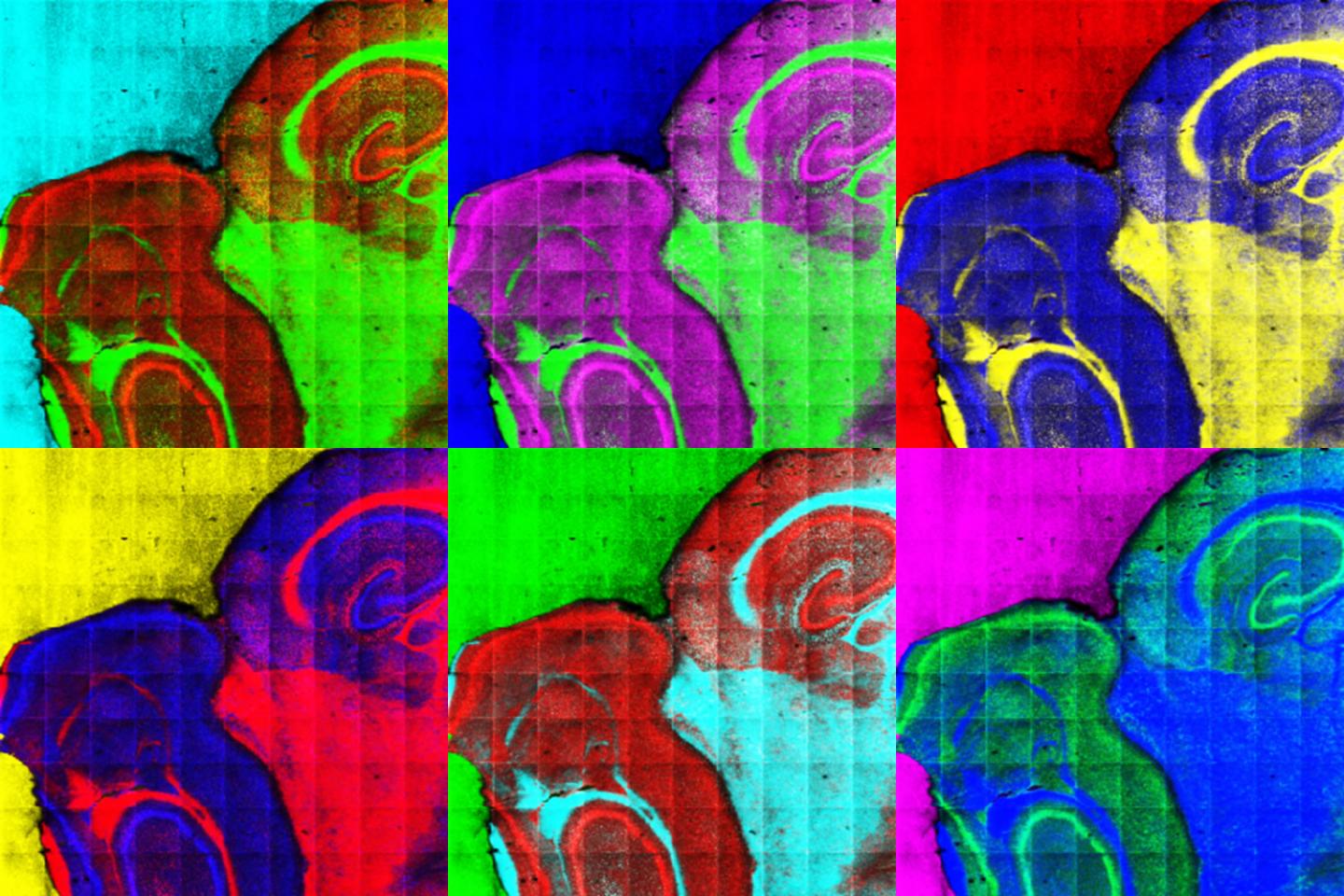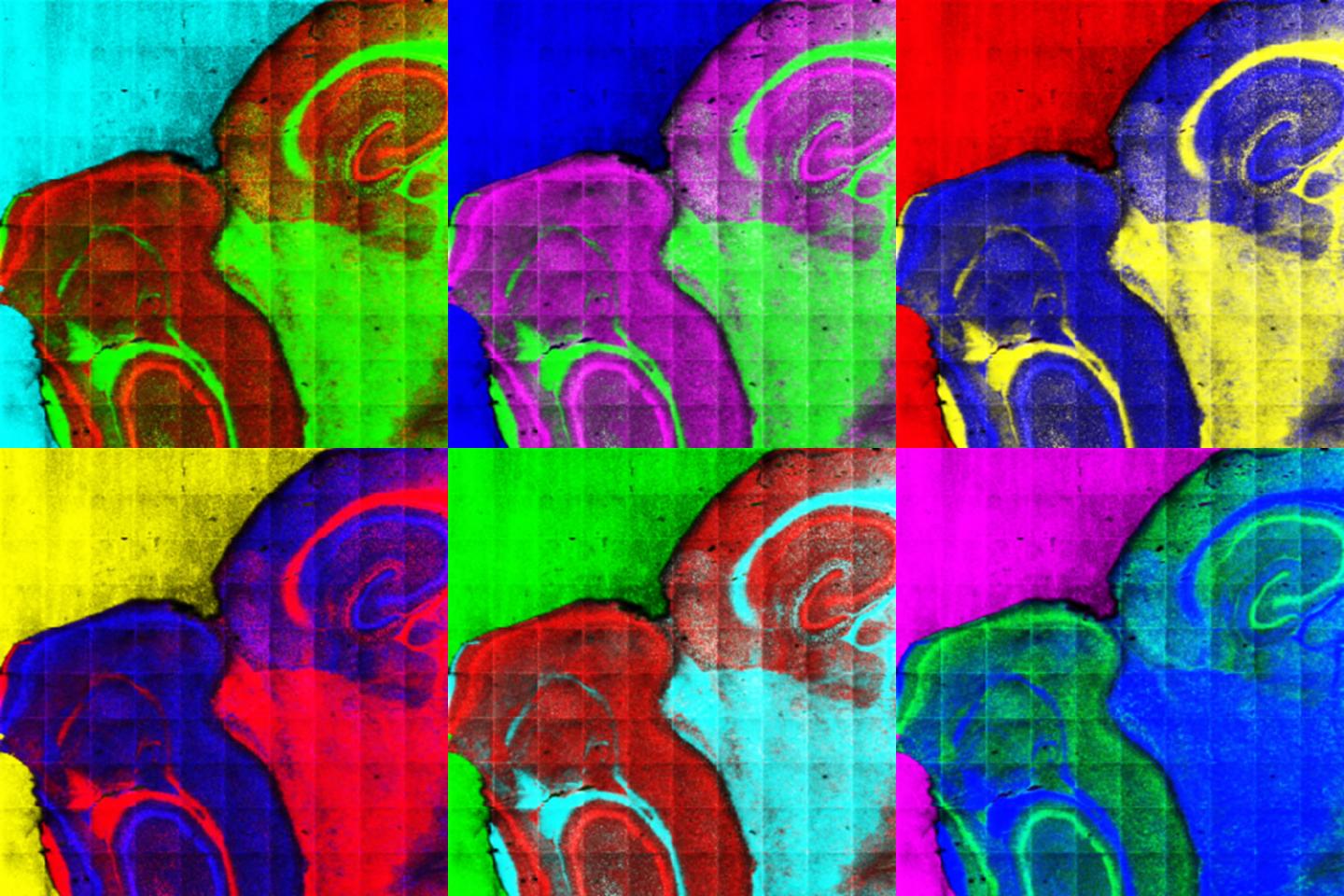
Credit: The University of Gothenburg
A special spectrometry method that is normally used in analyses of computer chips, lacquers and metals has been further developed at the University of Gothenburg so that it can help researchers better detect harmful cells in the body.
'The method may become important for example for future analyses of breast cancer tissue,' says PhD student Tina Angerer.
The method can be described as first releasing molecules and atoms from a piece of tissue by shooting gas projectiles at it and then using so-called mass spectrometry to identify the released particles. The process is repeated many times until the entire tissue surface has been analysed and Angerer and her research colleagues have created a 'chemical map' of the tissue.
The method is normally used when analysing inorganic material such as computer chips, lacquers, rust, semiconductors and metals. In those cases, the process is destructive and destroys a great deal of the information. However, the University of Gothenburg has a unique instrument that is optimised for organic and biological materials such as cell and tissue samples.
'What's special about it is that with our instruments, the "bombardment" is softer so that large molecules can be analysed at the same time as the chemical pictures we take still have good resolution,' says Angerer.
Lipids play a key role in the cell
The tested samples include cancer tissue, and the researchers have given particular attention to lipids. Lipids consist of fatty acids, which are interesting objects of study since they form important building blocks of cells and protect them against the environment. Lipids can change rapidly and reveal problems in the cell.
While most cells in the body build their lipids with fatty acids derived from the food we eat, Angerer's mass spectrometry results show that cancer cells build their fatty acids by using various types of sugar, but also fat and protein to some extent.
Researchers have long known that cancer cells consume great amounts of sugar and have entertained the idea that cancer cells may create their own fatty acids. However, no evidence of this has been presented.
'We have been able to show that fatty acids from food can be found around cancer tissue and in healthy cells, but that cancer cells consist almost exclusively of fatty acids that the cells have created by themselves. This means that cancer cells can grow and multiply as long as they have enough sugar, and this is one reason they are so dangerous.
The refined mass spectrometry method also revealed that the area where the cancer tumour was found displayed a variety of lipid profiles.
'Those variations may be one reason why it is so hard to come up with a treatment that works for all cancer cells. The lipids are one of several keys to understanding cancer, at the same time as more research is needed in order to develop better treatments,' says Angerer.
###
Thesis title: Interrogation of Biological Samples by ToF-SIMS Using New Primary Ion Beams and Sample Preparation Methods
Link: http://hdl.handle.net/2077/50294
Supervisor: John S. Fletcher
Contact: Tina Angerer at the Department of Chemistry and Molecular Biology
[email protected], [email protected]
Tel.: +46 (0)739 44 88 29
Media Contact
Tina Angerer
[email protected]
46-073-944-8829
@uniofgothenburg
http://www.gu.se/english
############
Story Source: Materials provided by Scienmag





